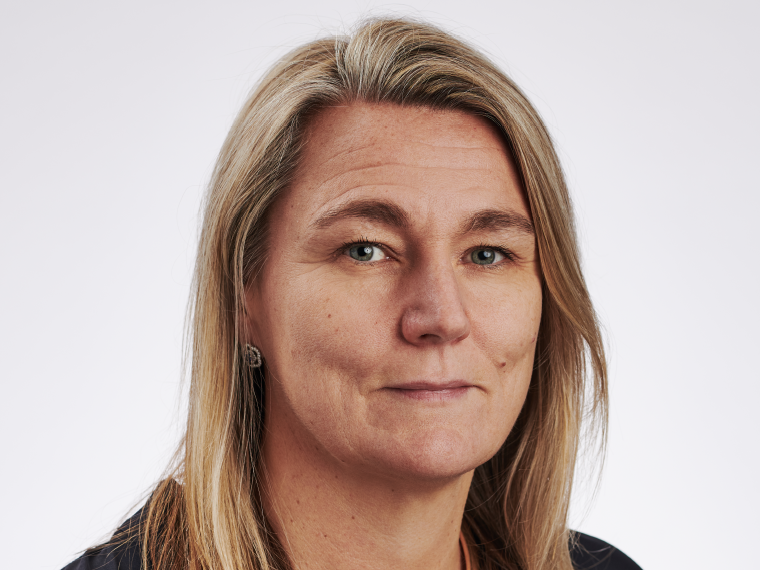
Specialist publisher Future has more than doubled pre-tax profits, with the company’s continued growth amid the Covid-19 pandemic put down to the diversity of its revenue streams.
The media company has revealed revenue growth of 79% to £606.8m in the year to 30 September, with organic growth of 23%.
The organic figure does not include the recent acquisitions of magazine publisher TI Media, price comparison site companies GoCo and Mozo, entertainment publisher Cinema Blend and Marie Claire US. Since the end of the financial year, Future has also acquired The Week publisher Dennis for £300m.
Pre-tax profits more than doubled (107% growth) to £107.8m while operating profit was up 127% to £115.3m.
Future chief executive Zillah Byng-Thorne said the results reflected “the diversity of our revenue streams and our global reach and the operating leverage of our business model”.
She added that revenue growth was “driven by the strength of our trusted content which continues to attract a high value audience.
“The growth was accelerated in the US and we are confident about our ability to capitalise on the opportunity in North America, to further strengthen and diversify our revenue streams,” she said.
In particular Future is looking to the former TI Media brands, which it finished buying in a £140m takeover in April 2020, to continue its “early momentum” in US growth, particularly with its homes and women’s lifestyle brands.
The financial results said the TI Media brands, which include Cycling Weekly and Country Life, were benefiting from “revised editorial strategies and significantly enhanced SEO skills coupled with a North America first mindset”.
The new acquisitions are also benefiting from Future’s proprietary technology, Byng-Thorne said. She said Marie Claire US had migrated on to Vanilla, Future’s content management system, ten days ago and seen revenue per user leap by 40% overnight. Some 41 of its websites are now on Vanilla.
In the magazine division, which publishes more than 130 titles including Woman & Home, Classic Rock, FourFourTwo and Total Film, organic revenue grew by 4% with a decline of 13% over a two-year period.
Including the TI Media acquisition, the magazine division grew revenues by 80% to £184m.
Future said the growth in magazines was driven by a strong recovery in the second half of the year of 34%. This was compared, year over year, with the worst-hit part of the pandemic for store closures and newsstand sales. By contrast, subscriptions remained “resilient” throughout.
The media division, which encompasses e-commerce, events and digital advertising across a range of brands including Marie Claire, Tech Radar, PC Gamer, and Tom’s Guide, grew revenue by a quarter.
Digital advertising grew by 27% organically, e-commerce revenue grew by 36% organically, while other media revenues declined by 17% or £2.4m organically driven by events which were down 37% or £3.2m.
Events saw a “swift recovery” in the second half of the financial year as Covid-19 restrictions lifted. During the full year, Future hosted 78 events, 74 of which were virtual. Some 93,000 people attended the four live events - the Homebuilding and Renovation show in London saw more attendees than in 2019.
TI Media is now fully integrated into Future, which resulted in cost savings in the financial year of £14m, adding to £3m savings from 2020. Future said this meant cost synergies were £5m higher than it originally thought when the acquisition was made.
The integration of Dennis into Future remains ongoing but “the combined teams are already working to deliver the strategic plan”, Future said.
Dennis brought with it a strong subscriptions business which Byng-Thorne told Press Gazette completed her “holy trinity of media revenues” - advertising, e-commerce/affiliate, and recurring revenues such as subscriptions.
She said the Dennis acquisition would also allow Future to scale its wealth and savings vertical through the Money Week and Kiplinger brands, and act as another pillar for it to extend its US reach.
Its expected cost synergies of £8m per year by 2023 are 60% higher than at the time the transaction was announced.
Future grew headcount across its editorial teams by 12% and technology team by 14%, saying both were areas of “competitive advantage”. Including acquisitions, editorial headcount nearly doubled to more than 1,200.
It said it invested £85m in content creation, largely focused around evergreen content and output that is “relevant and valuable”.
Byng-Thorne told Press Gazette the “biggest challenge” of the past 18 months, especially amid the acquisitions spree, had been “making sure we take care of our staff”. They have now returned to their offices for three days a week and Byng-Thorne said she was “delighted” to “make that connection again”.
Staff are to benefit from the maximum amount being paid out in the all-staff annual profit pool bonus scheme. In April, Future also launched an all-staff share scheme. “This is in line with our values that all employees share in our success,” it said.
Asked what Future is doing differently to competitors, Byng-Thorne told Press Gazette it is its “combination of technology and ways of working – do the right thing for the customer, do the right thing for the audience”.
She added that giving staff a “sense of ownership and belonging to the group is what sets us apart”.
Picture: Future
Email pged@pressgazette.co.uk to point out mistakes, provide story tips or send in a letter for publication on our "Letters Page" blog
